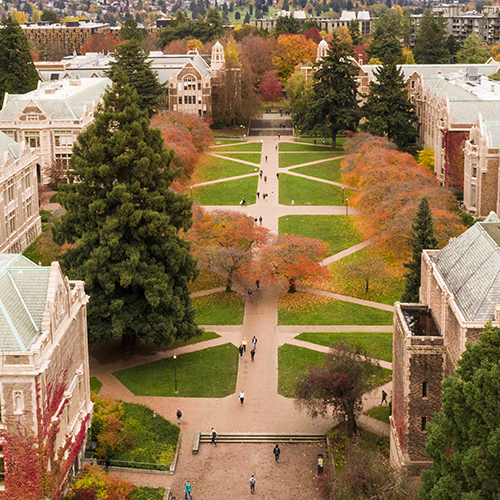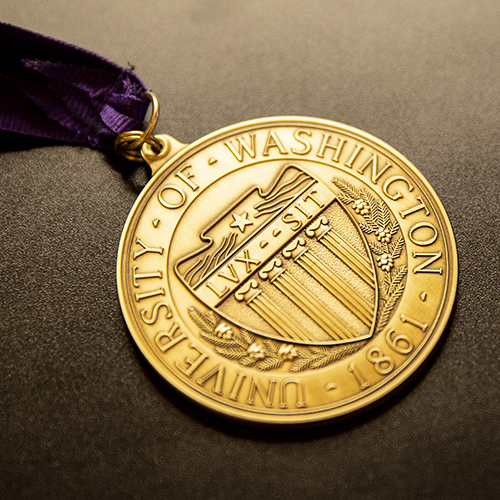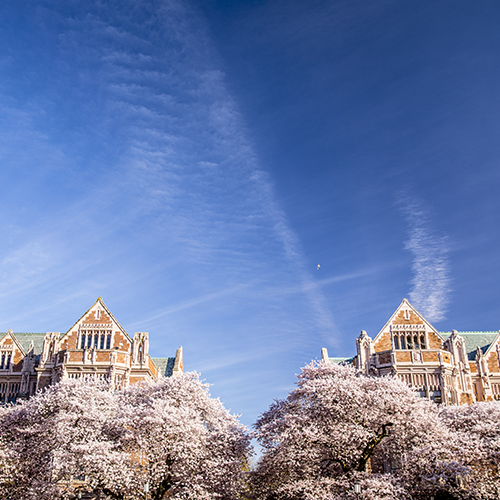Geography major Loyce Mbewa, who received a 2005 Truman Scholarship, was born and raised in the small village of Rabuor in the western part of Kenya. During her childhood and adolescence, she saw herself not as someone living in poverty but as someone who benefited greatly from the fellowship and strong support of her community.

“At that time—before the arrival of HIV/AIDS—children were lovingly looked after by an extended network of relatives and neighbors and village life was an endless source of strength and joy,” recalls Mbewa.
After coming to the United States in 1996, Mbewa eventually found her way to Seattle, where she began working at the Bill & Melinda Gates Foundation. During her nearly three years with the foundation, she started to reflect on her home village and the problems that friends and family there were experiencing.
In 2002, Mbewa joined a delegation traveling to Africa to coordinate a visit by President Jimmy Carter and Bill Gates Sr. to several countries, including Kenya. The agenda for this Gates Foundation-sponsored trip was the advancement of knowledge and awareness about HIV/AIDS in Africa. When Mbewa returned to her native home, the joy she fondly remembered was gone from the faces of her fellow villagers, and in its place was pain and suffering caused by the devastating arrival of HIV/AIDS.
Mbewa felt the need to take immediate action. Building on the villagers’ own efforts to address HIV/AIDS in their community, she founded the Rabuor Village Project to support ongoing sustainable community health and development projects in her home village. Mbewa’s vision is to combat HIV/AIDS, and the enormous personal and social burdens that it creates, through innovative, community-based solutions and participatory action.
Rabuor Village Project (RVP) accomplishments include drilling a community well—the village’s first improved water source; building and maintaining a nursery school that serves over 150 young students, many of whom have lost one or both parents to HIV/AIDS; providing scholarships to several promising high school students otherwise unable to continue their secondary education; purchasing oxen for the plowing of local fields; and granting small loans to community groups for income generation and food production activities such as sunflower oil production, goat husbandry, and brick-making. RVP relies on grants and individual donations to fund all of its activities.
In the future, Mbewa—who plans to earn a Masters in Public Health—hopes to replicate the RVP project model in other communities throughout the developing world.
More Stories

Awards for Research, Social Justice Efforts & More
Recent awards celebrate Arts & Sciences faculty, staff, and alumni for their research, social justice work, lifetime achievements, and more.

2025 UW Awards of Excellence
Arts & Science faculty and staff were among the recipients of 2025 UW Awards of Excellence for their teaching, leadership, and innovation.

Meet Our 2025 Graduate Medalists
Meet the four graduating students selected by the College of Arts & Sciences as 2025 Graduate Medalists for their accomplishments.